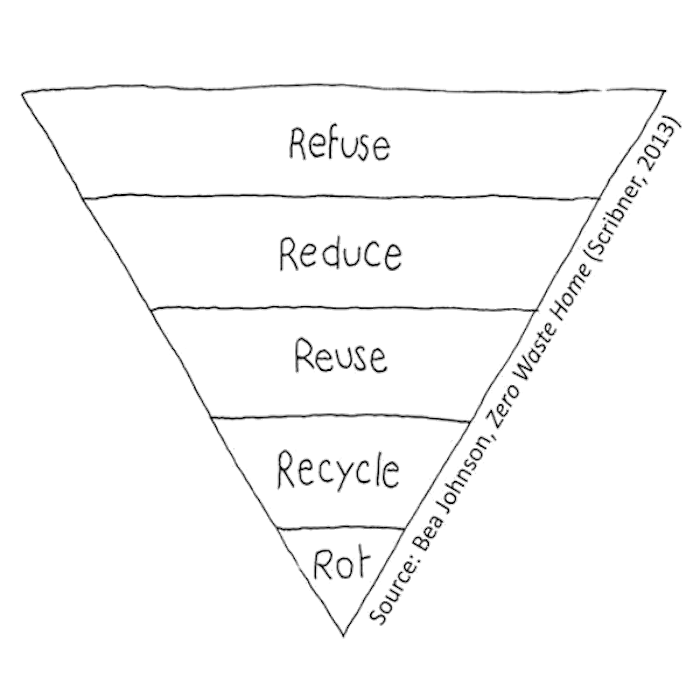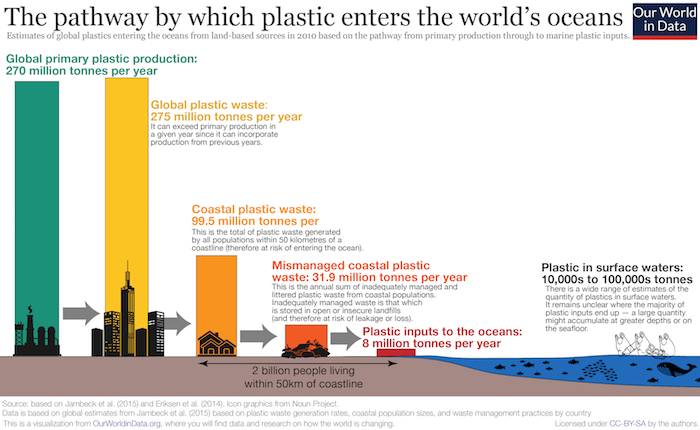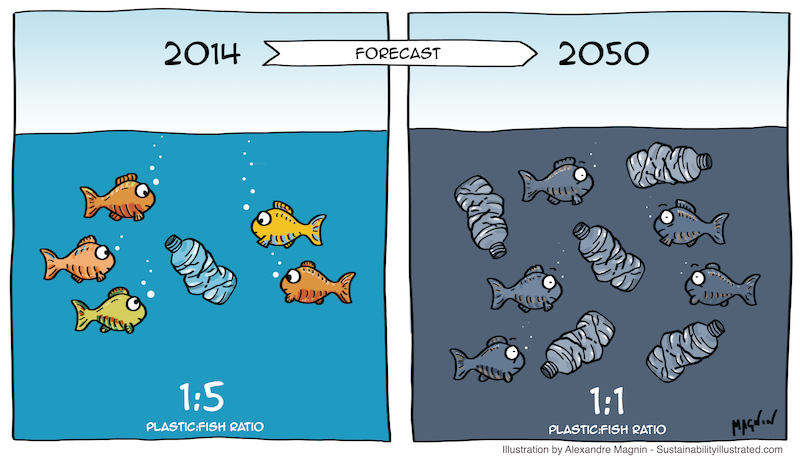GREENDOM

What is zero waste?
It is about to send nothing to a landfill. Reduce what we need, reuse as much as we can, send little to be recycled, and compost what we can.
5 zero waste concepts:
- REFUSE: say no to whatever is not essential.
- REDUCE: adopt minimalist tendences.
- REUSE: give items a second life.
- RECYCLE: prioritize recyclable packaging.
- ROT: compost all organic waste.
What's the problem with plastic?
Low-cost, lightweight and resistant, plastic has benefits we can not deny. But, unfortunately, we now see the consequences of our intense use, little recycling and leak into nature, where it negatively impacts rivers, oceans, wildlife and humans. The key issue is that synthetic materials such as plastics contain chemical combinations which means they don’t undergo decay. A plastic fork used for 15 minutes can take 450 years or more to decompose. What makes it even more challenging is the combination of plastic with other materials and the various types. The main differentiation is:
- Macro-plastics such as bags, cigarette filters, bottles, caps, food containers, cloths or straws are the most visible form of plastic pollution.
- Microplastics are the bits smaller than one-fifth of an inch.
To take action we need to understand
the production process of plastic.
Some facts:
- Since 1950, there have been 8.3 billion tons of plastics produced: 6.3 billion tons ended up as waste out of which 9% has been recycled, 12% was incinerated, and 79% ended up in landfills and nature. Most plastics can be recycled.
- Annual plastic production of ∼300 million tons of which 8m tons enters the oceans every year.
- 50% of annual production is single-use plastics, 26% by volume is packaging. It costs 1-2 euros per kilogram production of virgin plastic and it requires 2-3 liters to produce a 1-liter bottle.
- 99% of plastics are produced from chemicals derived from oil, natural gas and coal (non-renewable resources).

Naturally, this leads us to waste:
- Plastic waste is expected to quadruple from 2010 to 2050 and global recycling capacity will only cover 1/3 of the waste.
- China, Indonesia, Philippines, Thailand, Vietnam generate more ocean plastic waste than the rest of the world combined.
- 5 trillion single-use plastic bags are used worldwide every year.
- High-income countries generate more plastic waste per person but waste is managed well; thus a small leak into nature. Countries with poor waste collection and management cause more ocean plastic pollution.

The consequences:
- By 2050, it is predicted that there will be more plastic than fish in the oceans.
- 90% of bottled water and 70% – 90% of tap water contains plastic fibers.
- 15% of the sand is actually grains of microplastic on some beaches in Hawaii.
- 617,000sq miles (three times the size of France) = Great Pacific Garbage Patch between California and Hawaii, which is 50% caused by fishing nets, ropes and lines.
- Sea animals and birds ingest plastic, leading them to die. Around 600 species are believed to be affected, and 90% of the world’s seabirds have fragments of plastic in their stomachs, compared to 5% in 1960.
- ANIMALS EAT PLASTIC, WE EAT ANIMALS WITH PLASTIC.

Source by Impact Hub


